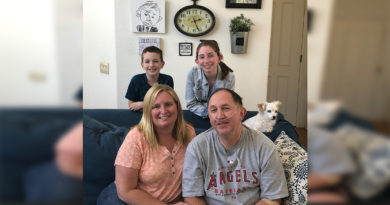New Austin Public Health plan addresses Covid-19 disparities in Hispanic/Latinx community
Austin Public Health has revealed a new draft strategic plan to tackle disparities in Covid-19 cases in the city’s Hispanic/Latinx community.
The plan, developed by the Hispanic/Latinx strike team within APH’s new Social Services Branch, is divided into four strategic goals: Outreach, Prevention, and Communication; Testing and Contact Tracing; Access to Quality Clinical Resources; and Economic and Employment Support.
Director Stephanie Hayden outlined the plan in an Aug. 28 memo to City Council. Hayden had announced the department would start working on a draft plan at the June 2 City Council meeting, where she raised the issue of the growing disproportionate number of Hispanic and African American Austinites seeking hospitalization for Covid-19. According to APH’s data, members of the Hispanic/Latinx community are hospitalized at a rate 4.4 percentage points higher than their white neighbors.
The strike team sent out a survey in July asking for community feedback on each of the plan’s strategic goals, and included open-ended questions. Of the 255 surveys submitted, five were completed in Spanish. Seventy-seven percent of respondents indicated all four strategic areas were important, with 59 percent marking the strategies as “Very Important.”
The plan lists several accomplished objectives, including efforts to increase Spanish-language resources and testing site availability in specific communities. As a part of its outreach, the department is working on a media campaign with paid spots on Spanish language television and radio stations and providing more translated resources in languages other than Spanish, such as Vietnamese, Chinese and Arabic.
Austin Public Health is looking to increase the scope of community health workers by creating a community health worker network alongside several Central Texas counties and providing the health workers with permanent employment opportunities.
To increase access to free testing, several walk-in testing sites and pop-ups have launched around Austin targeted at specific areas. However, the amount of testing needing processing has slowed turnaround rates, as APH currently uses only one lab to process all of the samples. APH is currently in talks with two more labs, CPL and Dascena, which should be integrated within the next few weeks.
Several of the plan’s objectives focus on economic and health disparities facing the Hispanic/Latinx community. APH is trying to increase access to primary care by meeting with clinical service providers to increase preventive care, as chronic diseases such as hypertension and diabetes can be aggravated by Covid-19.
The department’s Economic Recovery Team is currently negotiating a $2 million contract with the nonprofit Workers Defense Project to provide legal assistance and distribute financial support to high-risk workers in economic distress. To address housing concerns, APH is also planning to meet with the Neighborhood Housing and Community Development Department and the city manager’s office to discuss imposing penalties on landlords who violate CARES Act guidelines.
Photo made available through a Creative Commons license.
The Austin Monitor’s work is made possible by donations from the community. Though our reporting covers donors from time to time, we are careful to keep business and editorial efforts separate while maintaining transparency. A complete list of donors is available here, and our code of ethics is explained here.




